Carine M. Rebello
Efficient hybrid modeling and sorption model discovery for non-linear advection-diffusion-sorption systems: A systematic scientific machine learning approach
Mar 30, 2023Abstract:This study presents a systematic machine learning approach for creating efficient hybrid models and discovering sorption uptake models in non-linear advection-diffusion-sorption systems. It demonstrates an effective method to train these complex systems using gradient based optimizers, adjoint sensitivity analysis, and JIT-compiled vector Jacobian products, combined with spatial discretization and adaptive integrators. Sparse and symbolic regression were employed to identify missing functions in the artificial neural network. The robustness of the proposed method was tested on an in-silico data set of noisy breakthrough curve observations of fixed-bed adsorption, resulting in a well-fitted hybrid model. The study successfully reconstructed sorption uptake kinetics using sparse and symbolic regression, and accurately predicted breakthrough curves using identified polynomials, highlighting the potential of the proposed framework for discovering sorption kinetic law structures.
A Robust Scientific Machine Learning for Optimization: A Novel Robustness Theorem
Sep 13, 2022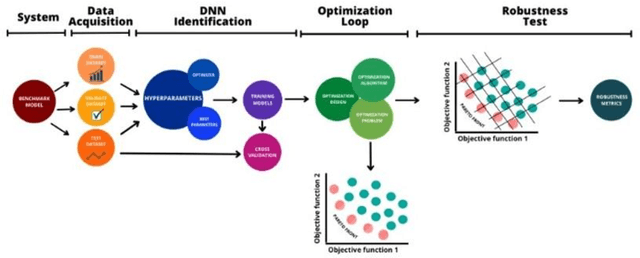

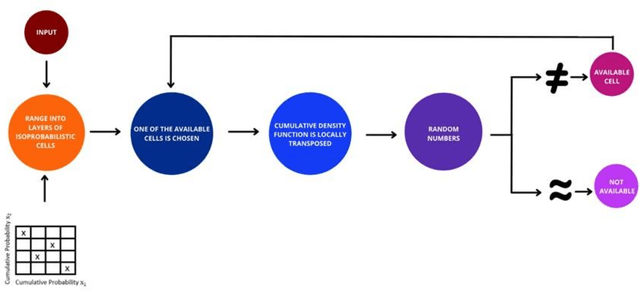
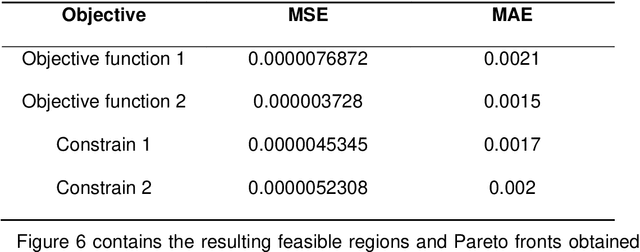
Abstract:Scientific machine learning (SciML) is a field of increasing interest in several different application fields. In an optimization context, SciML-based tools have enabled the development of more efficient optimization methods. However, implementing SciML tools for optimization must be rigorously evaluated and performed with caution. This work proposes the deductions of a robustness test that guarantees the robustness of multiobjective SciML-based optimization by showing that its results respect the universal approximator theorem. The test is applied in the framework of a novel methodology which is evaluated in a series of benchmarks illustrating its consistency. Moreover, the proposed methodology results are compared with feasible regions of rigorous optimization, which requires a significantly higher computational effort. Hence, this work provides a robustness test for guaranteed robustness in applying SciML tools in multiobjective optimization with lower computational effort than the existent alternative.
A new Reinforcement Learning framework to discover natural flavor molecules
Sep 13, 2022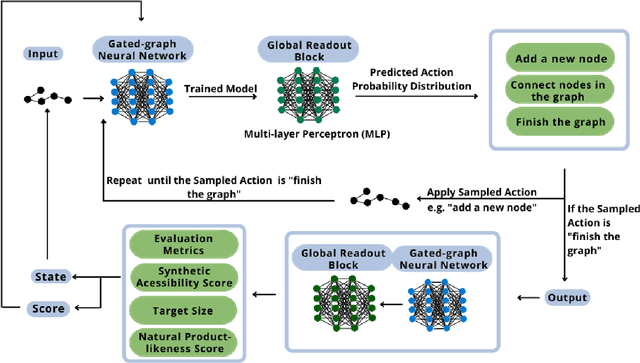

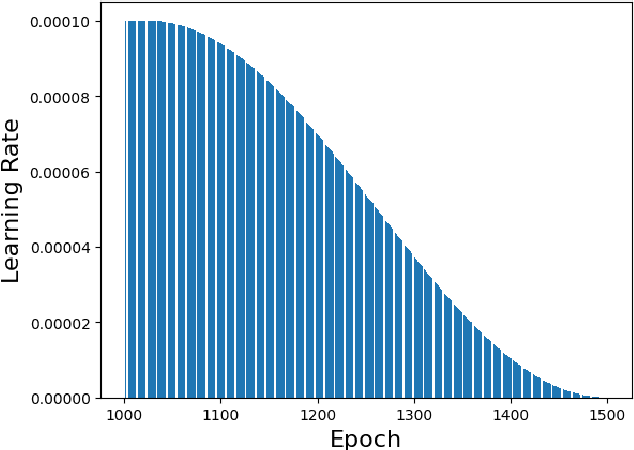
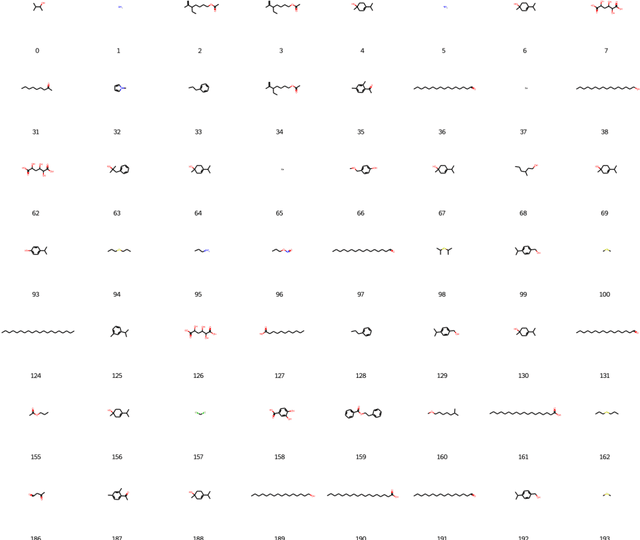
Abstract:The flavor is the focal point in the flavor industry, which follows social tendencies and behaviors. The research and development of new flavoring agents and molecules are essential in this field. On the other hand, the development of natural flavors plays a critical role in modern society. In light of this, the present work proposes a novel framework based on Scientific Machine Learning to undertake an emerging problem in flavor engineering and industry. Therefore, this work brings an innovative methodology to design new natural flavor molecules. The molecules are evaluated regarding the synthetic accessibility, the number of atoms, and the likeness to a natural or pseudo-natural product.
 Add to Chrome
Add to Chrome Add to Firefox
Add to Firefox Add to Edge
Add to Edge